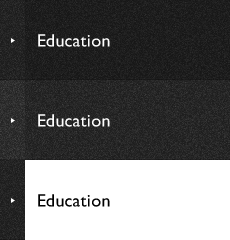An excellent academic environment
Tokyo Tech provides all its members with an excellent education and research environment.
Study spaces that stimulate intellectual curiosity
Tokyo Tech Lecture Theatre
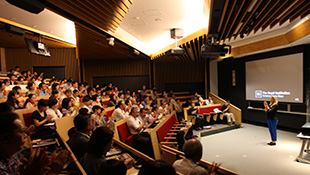
At Tokyo Tech, even students who have just joined the Bachelor's Program are in direct contact with leading Tokyo Tech researchers, Nobel Prize-level scientists, and industry experts with a creative edge. They can also experience lectures that feature creative discussions and open experiments. Through such lectures, students discover the depth and fun of science and technology, are inspired, and gain motivation to further their studies in these fields.
Active Learning
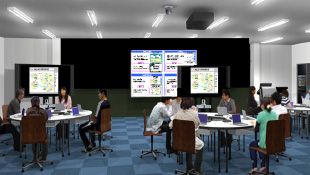
Along with traditional lectures where subjects are covered in depth by our faculty, courses with greater emphasis on active learning are also promoted. By incorporating group work, discussions, and presentations, students are encouraged to participate actively during class. Classrooms suitable for active learning have been set up on the Ookayama and Suzukakedai Campuses, and seminars on active learning are held for faculty.
System to support independent learning
Online Learning
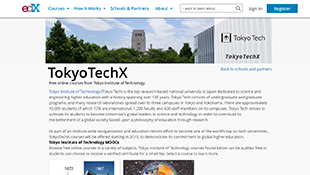
Tokyo Tech provides a rich online learning environment to promote self-learning. In addition to our conventional OpenCourseWare (Tokyo Tech OCW and OCW-i) courses, we also provide massive open online courses (MOOCs) via edX, a MOOC provider. Our MOOCs are offered mainly in English, making it possible to provide education to a diverse range of students around the world while encouraging Tokyo Tech students to learn outside the classroom in English. Furthermore, efforts are underway to use MOOCs and SPOCs (small private online courses) in class to promote independent learning and deeper understanding. The use of online courses to support flipped learning is one such example.
Learning portfolio system
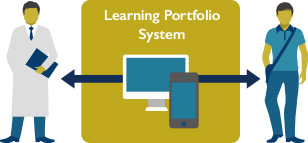
Tokyo Tech's learning portfolio system is an original tool designed for Tokyo Tech students. The system collects and stores information on learning progress and outcomes — study goals and plans, assignments, credits earned, extracurricular activities, and study abroad experience — for the full duration of each student's studies.
Students can refer back to the portfolio at any time to check their activities and accomplishments. This enables them to devise a road map and decide what issues they need to address next.
State-of-the-art facilities
Efficient sharing of facilities

Cutting-edge facilities are at the heart of Tokyo Tech education and research. The efficient sharing of these facilities enables Tokyo Tech to maintain both their quality and quantity. Students and laboratory members have access to many of these facilities including the supercomputer TSUBAME.
. Any information published on this site will be valid in relation to Science Tokyo.







